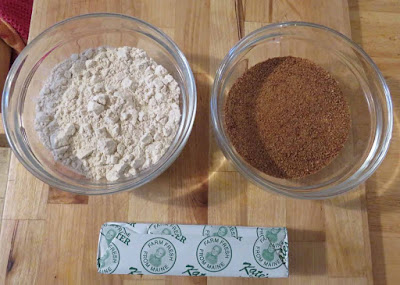Health appeal may be a big growth driver in the natural sweeteners market, but taste still triumphs. One of the greatest hurdles for any alternative sweetener to clear is replicating the taste and texture of table sugar that consumers have come to expect. But the fastest-growing natural sweetener on the U.S. market—coconut sugar—may be ideally suited to do just that.
Coconut sugar still holds only a fraction of the sweetener market when compared with stevia, the reigning natural sweetener champ. However, the U.S. market for coconut palm sweeteners has more than doubled in the last year, currently sitting at a little over $22 million, according to SPINS (Schaumburg, IL). By comparison, the market for stevia grew 12.3% in the last year to reach nearly $430 million, and the market for blends of stevia and other artificial sweeteners grew 1.5% to reach nearly $452 million. (Data as of March 22, 2015.)
Sourced from the dried nectar of flower blossoms at the top of coconut palm trees, coconut sugar is being billed as a healthier alternative to table sugar, especially for people with diabetes or other health conditions related to blood sugar. Although coconut sugar’s glycemic index range of 35-40 is higher than stevia’s score of 0, it’s still considerably lower than table sugar’s index in the mid-to-high 60s.
Coconut sugar still holds only a fraction of the sweetener market when compared with stevia, the reigning natural sweetener champ. However, the U.S. market for coconut palm sweeteners has more than doubled in the last year, currently sitting at a little over $22 million, according to SPINS (Schaumburg, IL). By comparison, the market for stevia grew 12.3% in the last year to reach nearly $430 million, and the market for blends of stevia and other artificial sweeteners grew 1.5% to reach nearly $452 million. (Data as of March 22, 2015.)
Sourced from the dried nectar of flower blossoms at the top of coconut palm trees, coconut sugar is being billed as a healthier alternative to table sugar, especially for people with diabetes or other health conditions related to blood sugar. Although coconut sugar’s glycemic index range of 35-40 is higher than stevia’s score of 0, it’s still considerably lower than table sugar’s index in the mid-to-high 60s.
Different from white sugar, palm sugar contains more nutrients such as amino acids, potassium, magnesium, zinc, B vitamins. Even based on the latest research, it also contains trace amounts of iron, vitamin C and protein.
There are many reasons that make coconut sugar as the main sweetener in the future. One is a low environmental impact, coconut sugar is not produced through a mechanized process that pollutes the environment. So coconut sugar is the best choice compared to other sweeteners.


